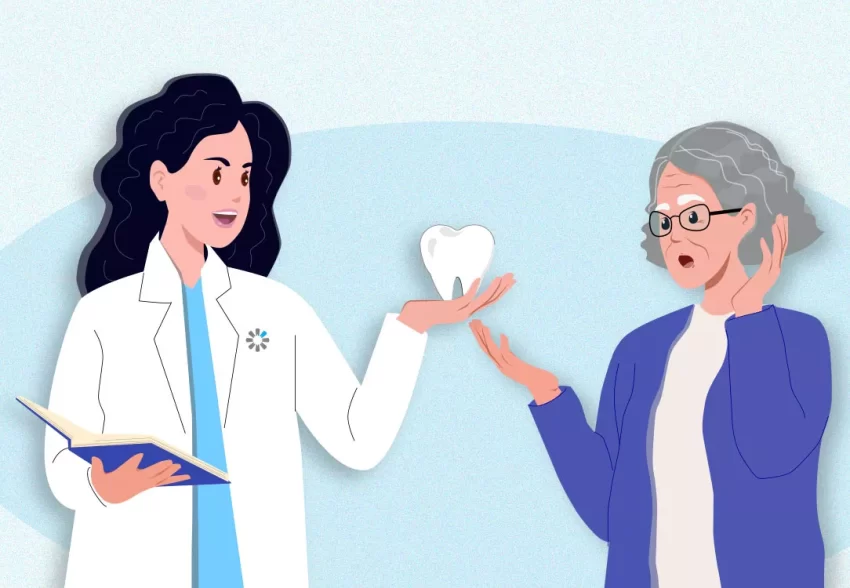Oral health is often overlooked, but it’s an important factor. The state of your smile is not the only thing that matters. It’s also closely linked to your health and happiness. We often consider factors such as nutrition, mental health, and exercise when we think of overall well-being.
This blog will explore the fascinating connection between oral health, overall wellbeing and well-being. Our goal is to give you essential insights and tips on how to prioritize your dental health while also promoting a happier, healthier you. Let’s get started!
What is Oral Health?
Oral health is more than a smile that’s bright and dazzling. Oral health is a broad term that encompasses many factors that affect the overall well-being of the mouth and body. Maintaining the health of the teeth, the gums, the tongue and the entire oral cavity is part of maintaining good oral health. Preventing dental problems is key, as well as caring for your microbiome.
Oral health is based on good oral hygiene. It is important to brush your teeth at least twice daily, floss regularly and use mouthwash. Oral health is more than just brushing your teeth twice a day, flossing regularly, and possibly using mouthwash.
Related: Gargling Salt Water: A Research-Backed Oral Health Guide
What is the relationship between oral health and overall well-being?
You might be surprised to learn that oral health is closely linked to overall well-being. Your mouth can be a window to your overall health. Poor oral health has been shown to have a wide-ranging impact on your overall well-being. They are all interconnected.
- Sleeping and Breathing: Mouth breath, bad breath, narrow dental arch’s, crowded teeth, what have they in common? These could be signs of sleep disordered breath. The shape of your mouth and tongue can affect the quality of sleep and your breathing.
- Heart Health Gum disease is linked to an increase in heart disease. Gum infections can cause bacteria to enter the bloodstream. This could lead to inflammation of the arteries, increasing the risk for cardiovascular problems.
- Respiratory health Oral infections may also affect the respiratory system. Inhaling bacteria can cause respiratory infections and pneumonia. It can also exacerbate asthma.
- Diabetes : People with diabetes can be more susceptible to gum diseases, and gum disease may make it difficult to control blood sugar. Each condition can exacerbate the other.
- Complications of pregnancy: Poor dental health during pregnancy increases the risk of premature birth and low weight birth. Oral health is a priority for pregnant women.
- Mental health: It’s true, there is a connection between mental health and oral well-being. Gum and tooth pain can cause anxiety and depression and affect your quality of life.
- Nutrition : Your oral health can influence your diet choices. A lack of teeth or gum disease can make it difficult to maintain a healthy diet. This will affect your nutrition, and ultimately your health.
Oral Health Conditions
We now know that oral health is closely linked to overall health. Let’s look at some conditions that are directly related to your mouth.
- Gum Disease Periodontitis This condition is marked by inflamed gingiva that, if untreated, can cause tooth loss. This condition has also been associated with systemic issues like diabetes and heart disease.
- Dental Caries: Cavities can be painful and cause infection. Cavities are caused by poor oral hygiene and sugary foods.
- Sleep Disordered breathing: Mouth breathing and a low tongue position can affect our sleep quality. A narrow upper lip can be a sign of a deviated septum, which impacts sleep and breathing.
- Regular dental examinations are important for the early detection of oral carcinoma. Oral cancer is more likely to develop if you smoke or drink excessively.
- Tooth sensitivity: Sensitivity towards hot and cold food or beverages can have a significant impact on your everyday life. This is often a sign that there are underlying dental problems.
How to achieve optimal oral health
Let’s look at how to maintain or improve your oral health now that you know the importance.
- Schedule regular dental checkups. These visits will help you identify problems early and stop them from getting worse.
- Good Dental Hygiene Brush your teeth twice daily with fluoride toothpaste. Use floss to remove plaque from between the teeth and an anti-microbial mouthwash.
- Balanced diet: Limit acidic and sugary foods and drinks. Diets rich in fruits and vegetables, whole grains, dairy products, lean proteins, and whole grains can help support oral health.
- Sleep Hygiene Ensure that you get a good night’s sleep by breathing with your lips closed and practicing good sleep hygiene.
- Stop Smoking: Quitting smoking can improve oral and overall health.
- Limit Alcohol : Alcohol consumption in excess can cause oral health problems. If you drink, do so in moderation.
- Stress management: High stress levels can cause teeth grinding which can damage teeth. Practice stress-reduction techniques like meditation or yoga.
- Protect your Teeth Wear mouth guards when playing contact sports and use nightguards if grinding teeth is a habit.
Improve Your Oral Health with a Lakewood Dentist
It’s not only about a great smile, but also your overall health. Your mouth is the gateway to your entire body. Taking care of it will have a profound impact on your overall health and well-being. We are here to help you achieve optimal oral health whether you live in Lakewood CO or elsewhere in the virtual realm. Do not hesitate to contact us and make an appointment. This is the first step to a happier, healthier you.
Read more:

